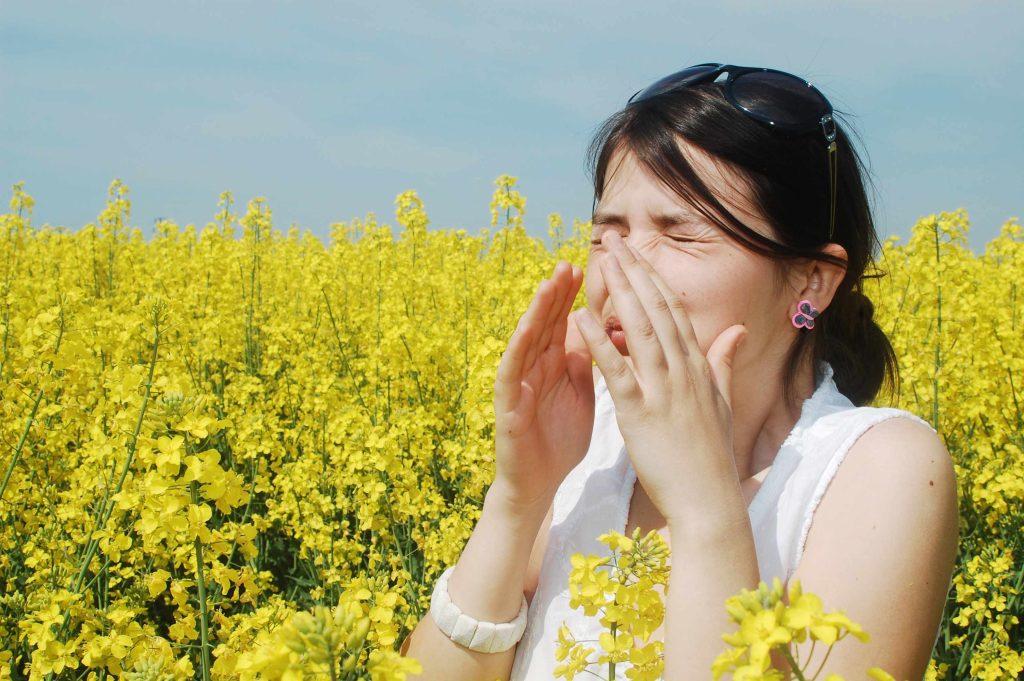April showers bring May flowers. Unfortunately along with flowers also comes airborne pollen from a multitude of plants including flowers, trees and weeds. In allergy-prone individuals pollen can trigger the release of chemicals such as histamine in the body, leading the unpleasant symptoms of runny nose, itchy eyes, congestion, and sneezing.
Patients with atopic dermatitis, also called eczema, have an unusually high association with seasonal allergies. In fact the triad of atopic dermatitis, seasonal allergies and asthma is often seen in the same individual. This triad also seems to run in families.
Over-the-counter medications such as antihistamines can help treat the symptoms of seasonal allergies, as well as the itch from atopic dermatitis. Antihistamines such as Benadryl can be sedating for some individuals and are best taken at bedtime. Other antihistamines such as Claritin, Zyrtec, or Xyzal are less likely to be sedating and may be good choices for daytime use. We may even recommend combining a sedating antihistamine at bedtime with a non-sedating antihistamine in the morning.
Avoiding the outdoors during peak times of pollen release can also help. If you suffer from significant seasonal allergies, it might be best to have someone else weed your garden!
This article was written by Stephanie Sutton, MD, who is a contributing author to the Sutton Dermatology Blog. Stephanie Sutton is a psychiatrist and she focuses on wellness.
Sources: Mayo Clinic, Web MD




Leave a Reply